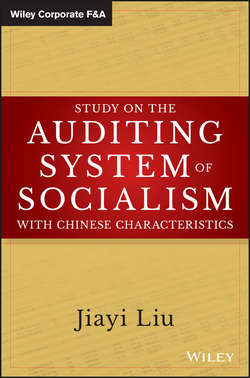Читать книгу Study on the Auditing System of Socialism with Chinese Characteristics - Liu Jiayi - Страница 13
На сайте Литреса книга снята с продажи.
Chapter 1
The Birth and Development of the Auditing System of Socialism with Chinese Characteristics
1. HISTORY OF THE CHINESE AUDITING SYSTEM
(2) Censorate Auditing System during the Qin and Han Dynasties
ОглавлениеFollowing the successful national unification, the Qin Dynasty launched a centralized system under which the official ranks of Chengxiang counselor-in-chief, Taiwei commander-in-chief, and Yushi Dafu censor-in-chief were established to respectively handle administrative, military, and supervisory power, forming a political layout of separation of the three powers with mutual checks and balances. This was further consolidated during the Han Dynasty (206 BC–220 AD). As recorded in the History of the Former Han, the emperor set the official rank of Jianmu (supervisor) to supervise and detect any ministerial misconduct, and Sicha (auditor) to rectify the performance of supervision. 26 Hence, a surveillance system with full authority came into being.
On the one hand, the Qin and Han Dynasties carried on the Administrative Reports System and formulated the Law of Administrative Reports System under which the counselor-in-chief should serve as the head of the Administrative Reports Institution; on the other hand, a censor auditing mode of “comprehensive supervision and investigation, and united supervision and examination” was developed. The Censor Prefecture and the Prefecture of Counsellor-in-chief were collectively referred to as the “Two Prefectures.” The censor-in-chief was obliged to “enforce laws, give reference, lead and supervise all officials,” and the Censor Prefecture could directly participate in administrative reporting presided over by counselor-in-chief.27 The Censor could directly exercise supervision over the site of administrative reporting, investigate the gains and losses resulting from the decrees issued by the chief, magistrate, and assistant officers, and verify whether “books of accounts” and other economic accounts were true.28 Besides, the Censor could also inspect the local government authorities at various levels and carry out on-site auditing. The Han Dynasty also successively promulgated the Nine Articles of Supervisory Censor and Six Articles for the Prefectural Governor, in which the Supervisory Censor and Prefectural Governor were authorized to supervise local officials, review the financial ledgers, and report, investigate, and impeach offenders who levied unfair taxes and engaged in corruption, according to laws.
The auditing system was further improved during the Cao Wei Dynasties (220–265). The term audit in comtemporary Chinese first appeared in Foreword to Sun-Tzu written by Cao Cao (155–220) for annotations to The Art of War. He proposed that “Audit, as a well-planned action should be precise and profound, without any misrepresentation.” Political strategy, military stratagems, and records of finance and military supplies were covered. The opening of Chapter 2, Conducting Operations, of the Art of War, reads, “In the operations of war, where there are in the field a thousand swift chariots, as many heavy chariots, and a hundred thousand mail-clad soldiers, with army provisions enough to carry them several hundred miles, the expenditure at home and at the front, including entertainment of guests, small items such as glue and paint, and sums spent on chariots and armor, will reach the total of a thousand ounces of silver per day. Such is the cost of raising an army of 100,000 men.” In this period, the establishment of Bibu (Court of Auditors) was the most significant development, replacing the Administrative Reports System.
26
Yan Kejun, All Three States Articles (Complete Collection of Literature from the Ancient Past through the Six Dynasties, Vol. 1), Vol. 21: Discussion on Politics by Xiahou Xuan, quoted from Records of Wei: Biography of Xiahou Xuan. Beijing: Zhonghua Book Company, 1965
27
Yan Shigu (Tang Dynasty) and Ban Gu (Han Dynasty), The History of the Former Han, Vol. 83: Biography of Zhu Bo. Beijing: Zhonghua Book Company
28
Li Jinhua (ed.), The History of Audit in China, Vol. 1. Beijing: China Modern Economic Publishing House, 2004.
